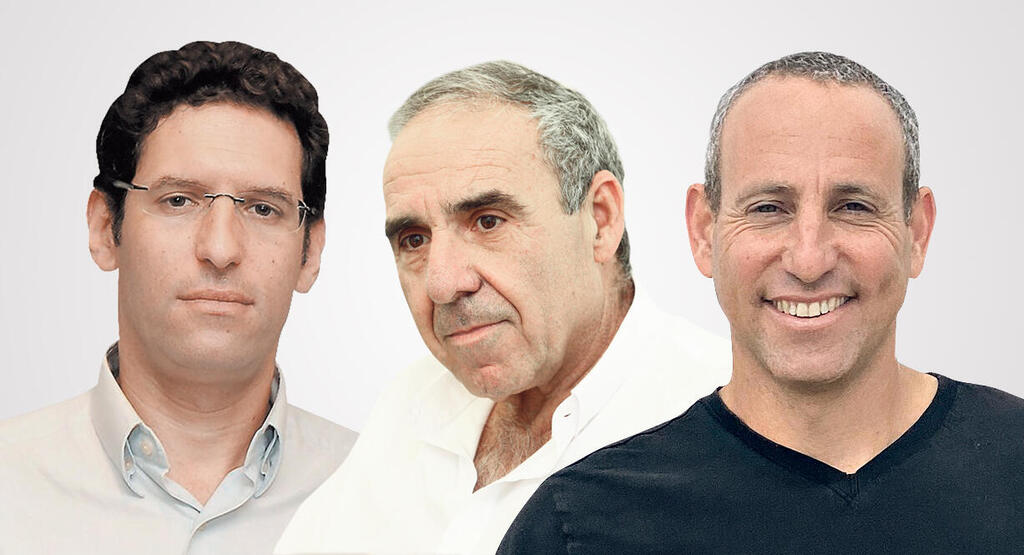
After just 13 months as CEO of Augwind, Allon Raveh leaves the company
The resignation comes just two weeks after the company's chairman, Moshe Kaplinsky, also announced his departure. In his letter to the board of directors, Raveh explained that it would be appropriate for him to step down in light of his high compensation and the need to reduce Augwind's ongoing costs.
After 13 months in the role, Augwind CEO Allon Raveh has announced his resignation. This follows the resignation of the company's chairman, Moshe Kaplinsky, just two weeks earlier, after a brief term of only nine months.
At the same time, Augwind has signed an agreement with the Israel Electric Corporation (IEC) to install one of its systems at the Rutenberg power plant in Ashkelon, for a total of NIS 7.5 million—Augwind’s largest contract to date in the field of energy efficiency. Following the
Raveh, who previously served as VP at real estate and infrastructure giant Shikun & Binui, as well as CEO of its subsidiaries Shikun & Binui Energy and Shikun & Binui Concessions, replaced the company’s founder Or Yogev, who transitioned to the role of VP of Technology and Development. Raveh’s compensation package was valued at NIS 6.3 million, including a fixed salary of NIS 1.8 million, a bonus of NIS 1.8 million, and equity compensation of NIS 2.7 million per year.
In practice, he received less than this, as 43% of the bonus was conditional on a company IPO outside of Israel—a condition that was not met. In addition, the 350,000 options he received, with exercise prices of NIS 59 and NIS 125, remained far out of the money due to a drop in the share price. Another 39,000 options granted to him last August, at an exercise price of NIS 13 as part of a 10% salary reduction, also remained out of the money (as of last weekend, the share price was NIS 5).
In a conversation with Calcalist, Raveh stated: "I am ending my role with a sense of accomplishment after making a significant contribution to the company, having placed it in a different position than where it was, with a clear plan for how it can move forward. During my tenure, I focused on reshaping the company and building an updated strategy, while focusing on large projects such as the one signed with the Israel Electric Corporation, alongside reducing headcount and reallocating resources so the company would have sufficient capital for continued development. I received full support from the board throughout the process, and the decision to step down was my own initiative."
Raveh added: "I believe Augwind has strong potential, and if the company succeeds in managing its activities properly—alongside managing investor expectations—it will be able to achieve results. I intend to continue working in the field of renewable energy." In his letter to the board, Raveh wrote that it was appropriate for him to step down due to his high salary and the need to reduce Augwind’s ongoing operational costs. Similarly, Chairman Kaplinsky’s resignation two weeks ago was attributed to the completion of the efficiency program he had led.
Augwind operates in two areas: energy efficiency—through the development and sale of a high-pressure gas compression system (AirSmart) that enables better energy utilization in factories and cost savings of up to 40% on operating air compression systems—and energy storage, with a system (AirBattery) based on the same technology, which has not yet been deployed commercially.
Augwind went public through a merger deal in 2019. Between 2019 and 2021, its revenues totaled less than NIS 20 million, while its cumulative losses reached NIS 153 million. In the first nine months of 2022, the company reported revenues of NIS 4 million and a loss of NIS 49 million.
As part of the efficiency measures initiated by Raveh in late June and July last year, Augwind reduced the salaries of several senior executives—including Raveh and founder Or Yogev—and in return allocated them options. In early January, Raveh announced an additional efficiency plan including three components: employee layoffs, reductions in salaries and operational expenses; phasing in the development of new storage projects based on improvements to existing energy efficiency solutions; and a focus on energy efficiency projects that have already resulted in system sales. According to company estimates, the plan will reduce cash requirements for ongoing operations in 2023 by up to NIS 25 million compared to the previous year.
The article was first published on February 19, 2023 and was reedited on May 7, 2025.














